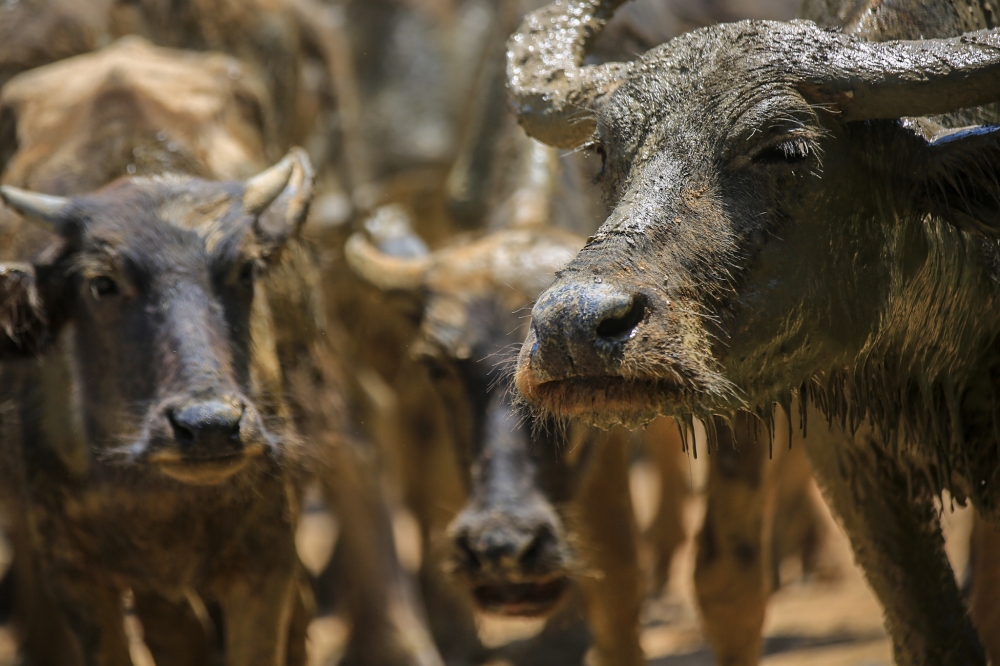KUCHING, July 12 — Sarawak is exploring the conversion of cow dung into hydrogen as part of its long-term circular green economy strategy, said Premier Datuk Patinggi Tan Sri Abang Johari Tun Openg.
According to the Premier, cow dung, which emits methane as it decomposes, can be processed into a renewable fuel source, opening new avenues for sustainable energy generation.
“If there are many cows, there will be a lot coming out of the cows.
“What comes out of the cows contains a lot of hydrogen because it produces methane, and from that, hydrogen can be extracted and used,” he said in his speech during the launch of the state-level International Day of Forests (IDF) 2025 at the Forest Research Centre here today.
Abang Johari said this initiative aligns with Sarawak’s broader aim to monetise waste under its green growth model.
“Don’t waste the waste — monetise the waste,” he said, quoting what he had recently shared at the Asean Summit for economic leaders in Kuala Lumpur.
He said the phrase has since been picked up by organisers as a key branding theme, reflecting global interest in Sarawak’s approach to environmental sustainability.
Sharing recent developments, Abang Johari highlighted an initiative with Sarawak Land Custody and Rehabilitation Authority (Salcra) in Lubok Antu to extract biomass and biofuel from palm oil kernel waste, under a RM30 million pilot project.
“When we break the kernel, it produces biomass which we can use for animal feed.
“Early trials with cattle and goats showed that local feed produced from palm waste could support healthy livestock growth.
“At the moment our animals are thin, and expensive. During Hari Raya Korban, one cow can cost up to RM12,000. That means we can use this waste to support our livestock sector,” he said.
He also revealed plans to develop biofuel from the same waste — including sustainable aviation fuel (SAF) — as part of Sarawak’s efforts to reduce reliance on raw commodity exports and transition to value-added production.
Touching on the theme of this year’s IDF celebration, “Forests and Food”, Abang Johari reiterated the importance of forest conservation and sustainable resource use for long-term survival.
He praised the Forest Department Sarawak (FDS) for their achievements in seed planting efforts, noting that they had exceeded the original target of 35 million trees by planting over 50 million to date.
“I want to thank those who brought belian tree seeds. If we can nurture these, we can replant many forest species — not only belian, but also nyatoh, meranti and others,” he said.
Abang Johari also expressed strong interest in the department’s use of 3D data technology to monitor forest conditions and tree species, which could support Sarawak’s entry into carbon trading markets.
“Every species of tree has a different capacity to absorb carbon. If you have the technology to identify tree types and characteristics, you can determine aggregate carbon absorption. That’s how carbon pricing is determined,” he said.
He said Sarawak’s sustainability efforts are rooted in the Post-Covid Development Strategy (PCDS) 2030, where environmental sustainability is one of the three main pillars alongside economic prosperity and social inclusivity.
“We have to execute our policies considering the importance of our environment,” he said.
The Premier added that Sarawak’s approach has been recognised internationally.
He recently returned from Tokyo, where he participated in a global hydrogen conference and shared Sarawak’s sustainability blueprint and hydrogen strategy.
He also confirmed that Sarawak had been invited to present its policies at the World Economic Forum in Davos, after missing a previous engagement in Tianjin.
“In Tokyo, during a panel discussion, they acknowledged what Sarawak has done for the world in terms of environmental management and green energy. InsyaAllah, we’ve been told that we will be invited to Davos,” he added.
Abang Johari emphasised that any form of development must strike a balance with environmental protection.
He noted that extreme weather events around the world — from flooding in Texas to heatwaves in Japan and China — are a warning sign.
“If we cannot manage our environment by placing sustainability as the foundation, the world’s temperature will rise. That’s not just dangerous for nations, it’s a threat to the entire human race.
“Humans cannot survive in temperatures of 43°C, 46°C, or 48°C. This is one of the major global challenges we face today,” he said. — The Borneo Post







